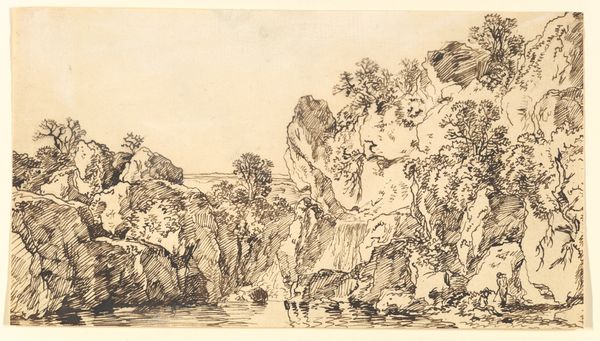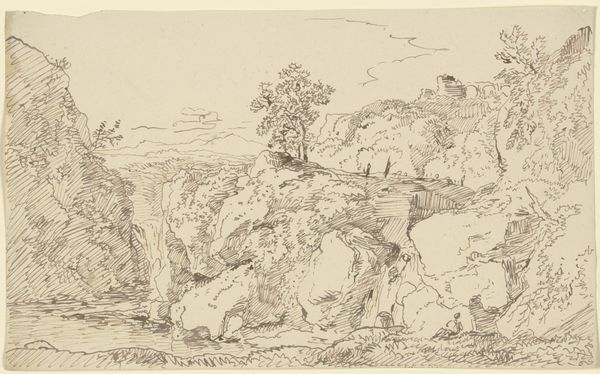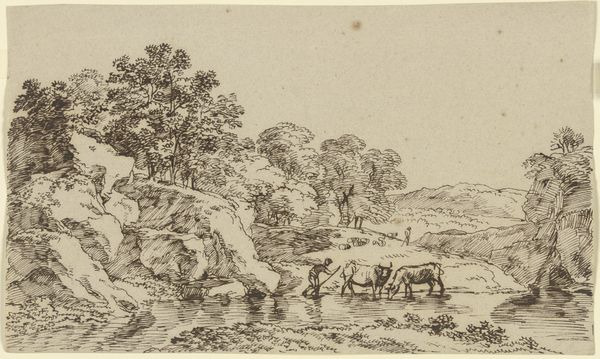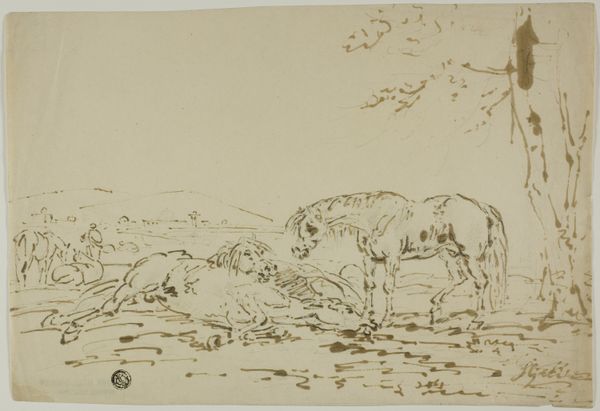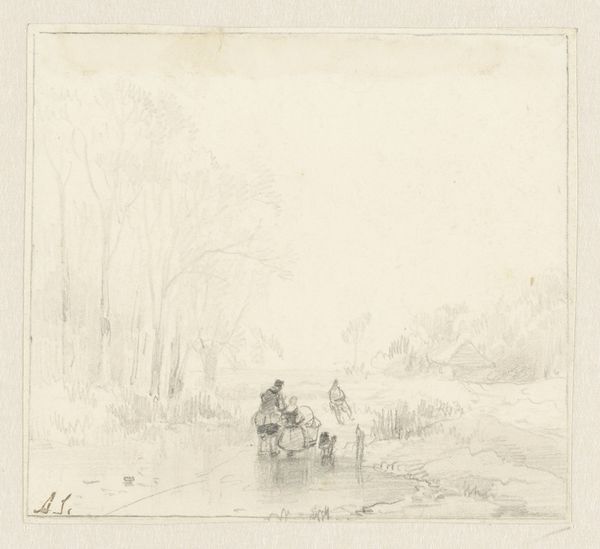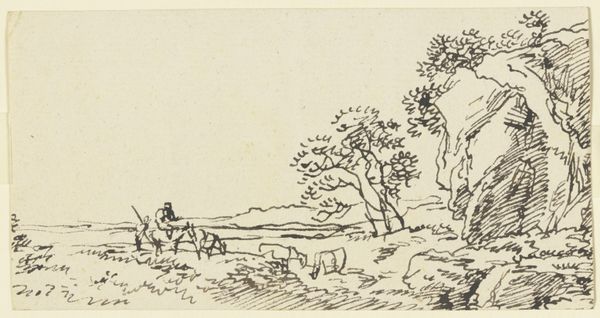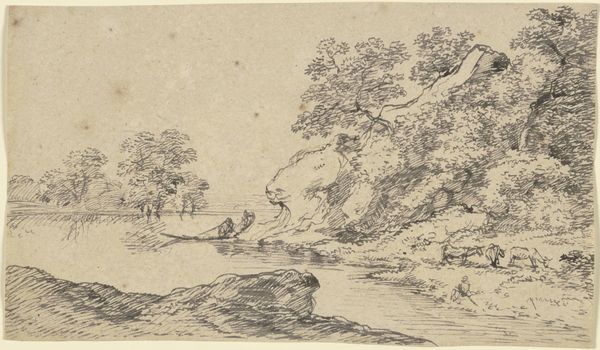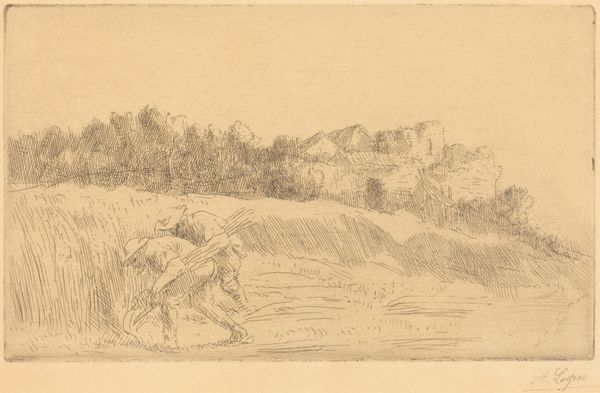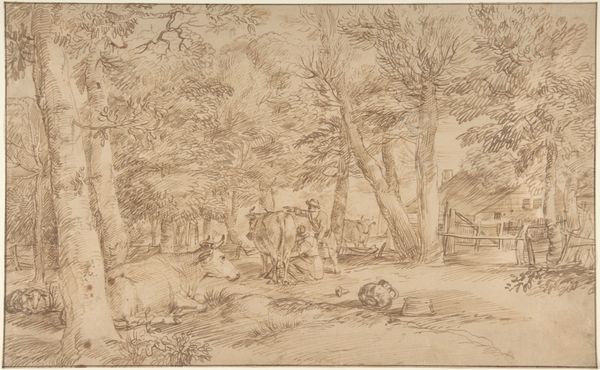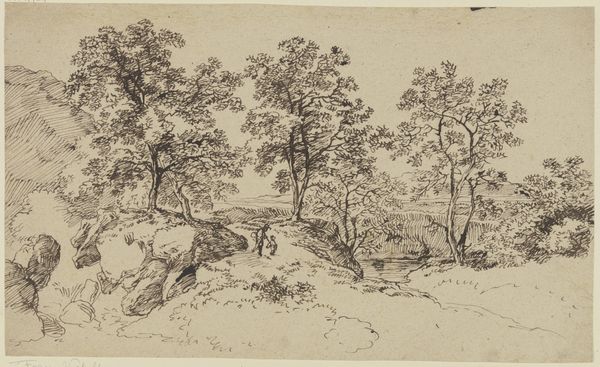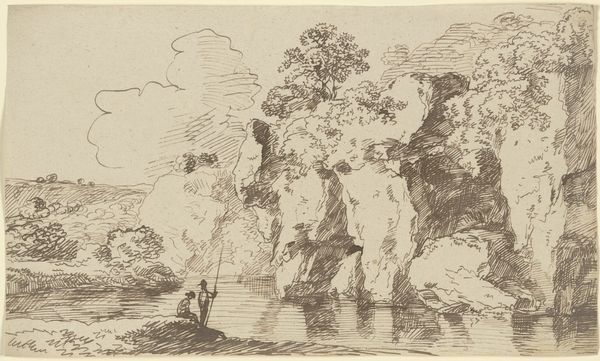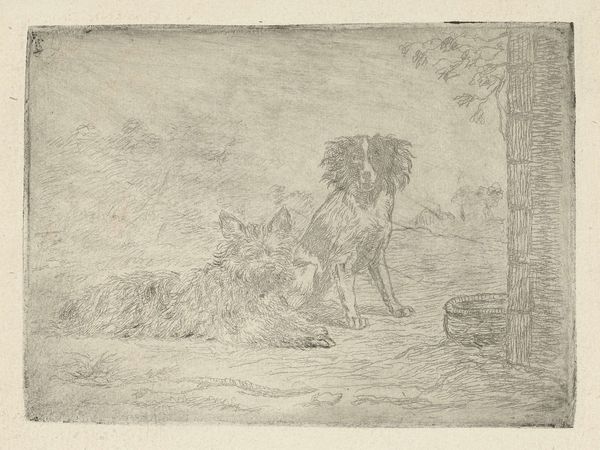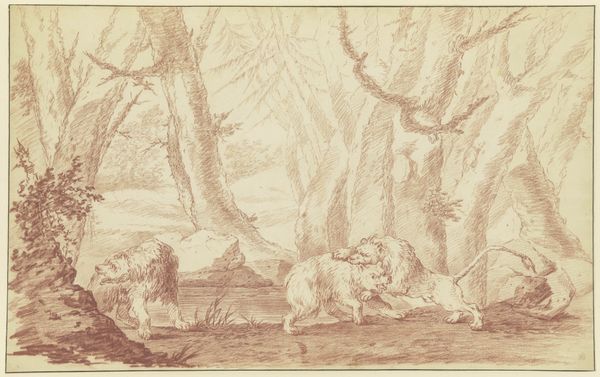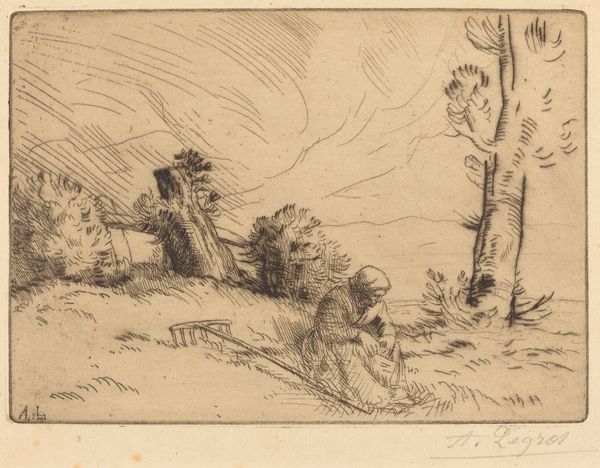
drawing, ink, indian-ink
#
landscape illustration sketch
#
drawing
#
light pencil work
#
ink drawing
#
pen sketch
#
pencil sketch
#
landscape
#
ink
#
german
#
ink drawing experimentation
#
indian-ink
#
pen-ink sketch
#
15_18th-century
#
pen work
#
sketchbook drawing
#
initial sketch
Copyright: Public Domain
This landscape drawing at the Städel Museum is by Franz Kobell, a German artist born in 1749. The sepia ink drawing is a study in contrasts and textures. Rocky outcrops and verdant hills form the composition’s bookends, framing a placid body of water. The scene, rendered entirely in delicate lines, evokes a sense of serenity and pastoral harmony. Kobell’s technique employs hatching and cross-hatching to model form and create tonal variation. See how the density of the lines suggests shadow and depth, giving volume to the rocks and foliage. The drawing presents a structured, almost geometric organization of natural elements, reflecting the Enlightenment’s interest in classifying and understanding the natural world through rational means. Consider how Kobell uses line not just descriptively, but expressively, to convey the differing textures of stone, water, and vegetation. The drawing invites us to contemplate the relationship between observation, representation, and the underlying order that artists seek in the landscape.
Comments
No comments
Be the first to comment and join the conversation on the ultimate creative platform.
